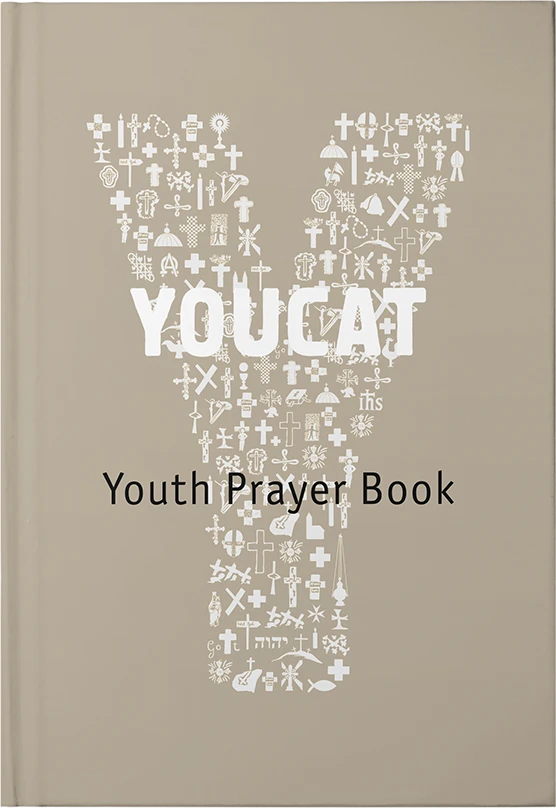

Credopedia
What is the definition of anathema and its meaning?
The anathema is a term used to describe a condemnation by the church. How it can happen and what it contains you can find out here.
Definition
Communion, Excommunication, Banning from Church
The word “communion” comes from Latin (“communio”) and signifies “community”. To be in living “communion” with other baptized Christian is fundamental to being a Christian, as well as the profession of the full faith of the Church (= the creed), the seven sacraments and the participation in worship, especially in the Eucharist, where Christians unite with Christ and with one another through the reception of his body and blood. This is also called “communicating”. “Excommunication” is not only exclusion from receiving communion; it is the suspension of ecclesial communion with an individual or a community who openly violates doctrine and/or the practice of the community of faith. “Excommunication” can be officially declared or revoked by the Church, or it can be granted automatically. An excommunication or an anathema (originally from the Greek anathema = that which is handed down to the wrath of the gods) is understood as the church’s reaction to a false doctrine. Just as the church can teach in a fundamentally binding (= dogmatic) way, it is also authorized to make binding doctrinal condemnations, whereby it is always the teaching that is condemned, not the person. Because of the misuse of the ecclesiastical ban, which in the Middle Ages was used in an inflationary manner and was applied to persons, the Church has in recent centuries been very careful with this instrument and has only issued declarations of incompatibility of doctrinal opinions with the teaching of the Catholic Church or has withdrawn the teaching authority from individual Catholic theologians.
What does the Holy Bible say?
Even at the times of the apostles and the start of the church unity has been an important topic within the church next to the transmission of the undiluted teachings of faith. To put it shortly those who held fast “to the apostles’ teaching” as well as to “the breaking of the bread” belonged to the church. (Acts 2:42). The is hardly a more important topic to the apostle Paul than holding fast to “the trustworthy word as taught” (Tit. 1:9 and many other passages). Paulus warns the church to not believe wrong preachers, for example in Galatians 1:8-9: “But even if we or an angel from heaven should preach to you a gospel contrary to the one we preached to you, let him be accursed. As we have said before, so now I say again: If anyone is preaching to you a gospel contrary to the one you received, let him be accursed.” Paul is even afraid of them: “But avoid irreverent babble, for it will lead people into more and more ungodliness, and their talk will spread like gangrene.” (2 Tim 2:17). The church is to take this warning to heart: “I appeal to you, brothers, to watch out for those who cause divisions and create obstacles contrary to the doctrine that you have been taught; avoid them.” (Romans 16:17). It is especially the bishops task – the successors of the apostles – to watch over the integrety and truth of the proclamation of faith. They are the highest priests, teachers and leaders of the church. At his parting speech in Milet Paul exhorts them: ” Pay careful attention to yourselves and to all the flock, in which the Holy Spirit has made you overseers, to care for the church of God, which he obtained with his own blood. I know that after my departure fierce wolves will come in among you, not sparing the flock; and from among your own selves will arise men speaking twisted things, to draw away the disciples after them! (Acts 20:28-30)
A short YOUCAT-Catechesis
Does the Church Excommunicate Itself at the Moment?
Right now you kind of feel like the church does not fit in anymore as though she fell out of time – she appears like a mysterious composition of strange rituals and even stranger teachings. But has the church ever really fit in?
By now the church is already 2000 years old. And you can really call it a miracle that she still exists. She started against all odds in house churches in Jerusalem and survived in Roman catacombs. The Ceasar Constantin turned into a state religion without asking many questions later. Celtic clans translated it according to the combative world view of their tribes. Inquisitors used her while stealing the gold from distant nations and the native Indians took her on despite the poor witness of their conquerors. Christians have nevertheless always been able in a miraculous way to invite into something very strange, into “a living fellowship with Jesus” (YOUCAT 12). Because this is what church is. The church is not a normal institution with their statutes of their club and a cashier. The church is about “fellowship with God that has been preserved unaltered since the times of the apostles in the Catholic Church.” (YOUCAT 12)
Unaltered? Even Worse!
This church actually claims to have the “truth”, even more, to have the presence of God. YOUCAT 13 says, “Although individual members of the Church can err and even make serious mistakes, the Church as a whole can never fall away from God’s truth. The Church carries through the ages a living truth that is greater than herself. We speak about a depositum fidei, a deposit of faith that is to be preserved. If such a truth is publicly disputed or distorted, the Church is called upon to clarify again “what has always and everywhere been believed by all” (St. Vincent of Lerins, d. 450).”
This is always been hard to believe. And this is why Christians have always been “excommunicated” from societies. In over 50 nations on earth today 200 million Christians suffer at times immensely under persecution. Actually, this might be not the worst sign.
You rather should view it as a very bad sign if Christians do not offend and act like everyone’s darling and perfectly fit in into the world. It seems like that this is exactly the problem the church has in the Western world: She has fallen asleep on the cushions of their privileges she enjoys and blended in with this world and lost salt and power. Even back in 1958, the later Pope Benedict XVI said: “This so-called Christian Europe has turned into a birthplace for heathenism in the last 400 years, which is growing uncontrollably within the church itself as well and threatens to undermine it… Heathenism is present in the midst of the church today. The church will not be able to avoid stepping out from the protection of the world step by step and to turn into what she is supposed to be again: a Community of the faithful.
The Return of Salt and Strength
Let’s take a look at the early church! The people who stepped out from their Jewish, Greek, Roman, Heathen backgrounds got baptized and decided on an option that automatically “excommunicated” them from their societies. They turned away “the futile ways inherited from (their) forefather(s)” (1 Pet 1:18) and risked it all for Lord Jesus Christ. (Phil 2:11) Concretely this meant: To turn away from every power which could have a sway over humans. Paul calls them: “idolatry, sorcery, enmity, strife, jealousy, fits of anger, rivalries, dissensions, divisions, envy, drunkenness, orgies, and things like these.” (Gal 5:20) This turning away made them strangers to their world, a world they did not turn away as better persons; wherever they were truly good (and in this way true Christians) they tried to serve, because they saw Christ in every person.
The growing community of Christians has firstly always been an option to freely decide for and secondly a community with a clear profile and a clear identity. This identity also involved the fact that those who clearly opposed the spirit of the Good News and who stirred up fights and divisions or who provoked her through immoral acts.
Today we Feel like this is All Irrelevant and Intolerant
Can not a community that strives to keep its own identity and who does not want to lose its profile be allowed to tell others who still belongs and who does not anymore? “As on the soccer field you cannot have the freedom to touch the ball with your hands, the church cannot allow within her community ‘freedom of religion’ which is against the good news” (Jochen Teuffel). Those who commit foul throw themselves out of the game. Of course, it hurts if a bishop rightly acts within his role to watch out. The Greek word bishop means Overseer. The truth is that there are not only great theologians who are a great blessing for the church, but there are also “wrong teachers” inside the church, who think they are the magisterium themselves, who take Jesus as just one of us, take resurrection as a symbolical sign and find the ten commandments outdates and support “Planned Parenthood” as compatible with the Good News. Before students learn from them to not fail their tests and later on confess lies instead of the gospel, the shepherd needs to stand up and say: My friend, you can teach what you want. But not in the name of the church.

YOUCAT Digital
Discover our digital products, which will help you to grow in faith and become missionaries yourself.







